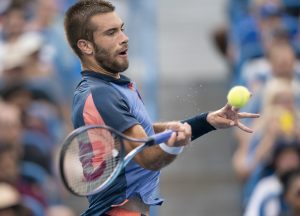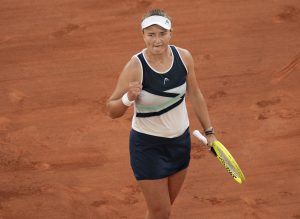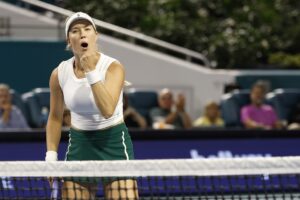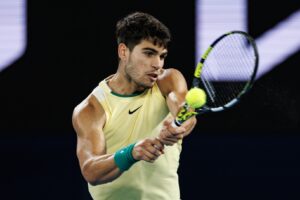After a lot of speculation and discussion over the impending announcement, former World No. 1 Novak Djokovic confirmed that he would be skipping the remainder of the 2017 season to recover from his long-term elbow injury–an injury that has been detrimental to his progress on the tennis court for over twelve months now.
Djokovic revealed in a statement on NovakDjokovic.com that: “All the doctors I’ve consulted, and all the specialists I have visited, in Serbia and all over the world, have agreed that this injury requires rest. A prolonged break from the sport is inevitable. I’ll do whatever it takes to recover. I will use the upcoming period to strengthen my body and also to improve certain tennis elements that I have not been able to work on over the past years due to a demanding schedule.”
He also explained: “Five months may seem long from this point, but I’m sure they will pass quickly because there is so much I want to do. My elbow is hurt due to excessive playing, and it troubles me constantly when serving, and now when playing forehand as well. Unfortunately, such injuries are often encountered in a professional sport, and I am very proud of the fact that I have been free from serious injuries during all these years.”
When Djokovic first came onto the tour, he suffered regularly physically and retired from a lot of matches, but over the years he has improved not only the mental side of the game–becoming one of the most mentally superior players on the tour–but also immensely improved the physical aspects to his game, making him one of the more formidable physical players on the tour. You would know you had been in a real slugfest after facing the Serbian, because of his ability to show his authority from the baseline, but this recent injury layoff really does dictate to the rest of the world at just how physical this game of tennis has become.
One burning question that will be answered in the years ahead is whether Djokovic’s brand of tennis will allow him to play for a prolonged period of time. We have seen the likes of Roger Federer successfully play well into his 30s, but his style of tennis is lot less physical than that of Djokovic’s. The physical demands that Djokovic puts on his body to consistently defend and scurry from the back of the court is something that takes its toll on the Serb and his recent forced absence from the tour proves just that.
This layoff could be beneficial to him, though. He has played 51 Grand Slams in a row and he will miss his first ever Grand Slam since the US Open in 2004, so this is a huge moment in Djokovic’s life but also for the rest of the field. A lot of people in the tennis world have already spoken about how rejuvenated and refreshed Djokovic will be when he returns in 2018, but not enough is being spoken about the benefits mentally from having a sustained time away from the tour.
Like I said, for many years, many viewed Djokovic as the toughest possible match in tennis, but the mental frailties were evident to see, particularly in 2017. Mentally he was losing his stranglehold on the rest of the tour and more players believed they could get the victory over him, so this period away from tennis will give him the opportunity to discover why he loves the sport and whether he truly wants to continue to improve his Grand Slam tally, which is currently set at 12 major wins right now.
Djokovic also reiterated his plans of reconnecting with Andre Agassi in the new season. The beginning of their partnership did not go to plan, but the win in Eastbourne suggests that he can and will still achieve successful results with the all-time great by his side: “We’ve been speaking regularly. Andre was with me in Toronto and he helped me find doctors, specialist in treating elbow injuries. During this short period of time, we’ve been getting to know each other and building trust and understanding. He supports my decision to take a break, and remains my head coach. He is going to help me get back into shape and bounce back strong after the recovery period.”
Not every player successfully continues to produce tremendous results after the reach the age of 30, but with Agassi in his corner, he is the living proof that not all is lost when you reach the latter years of your career. Djokovic will take a lot of optimism out of that very fact as he draws the comparisons in his career to that of Andre Agassi.






